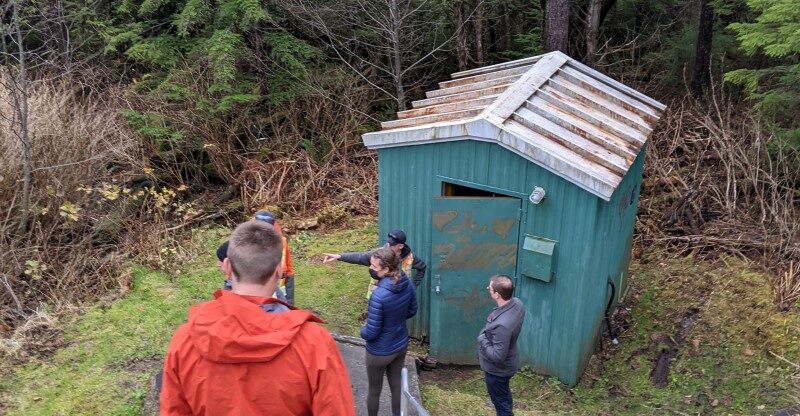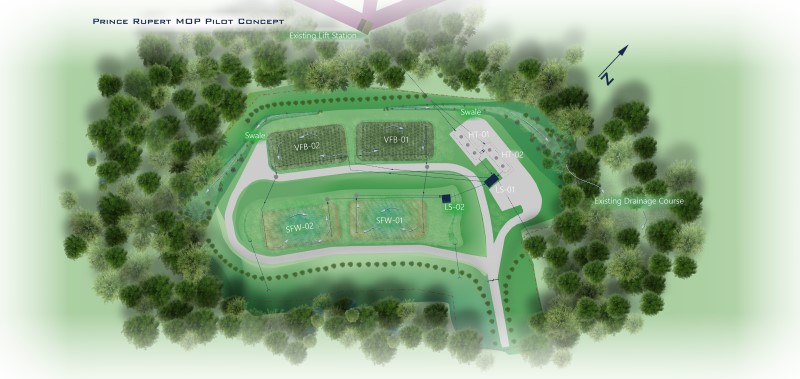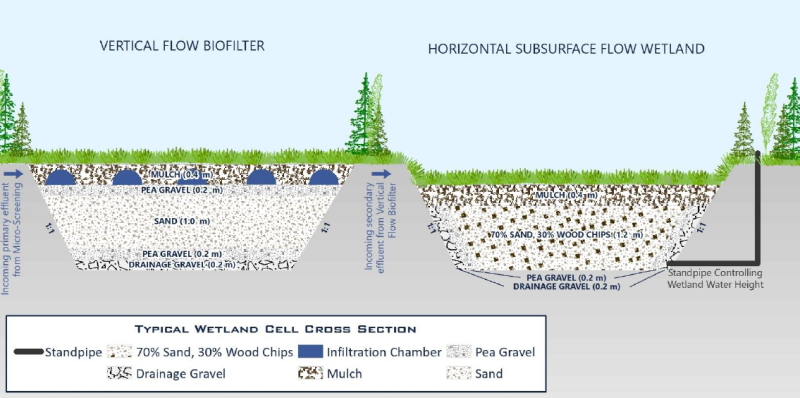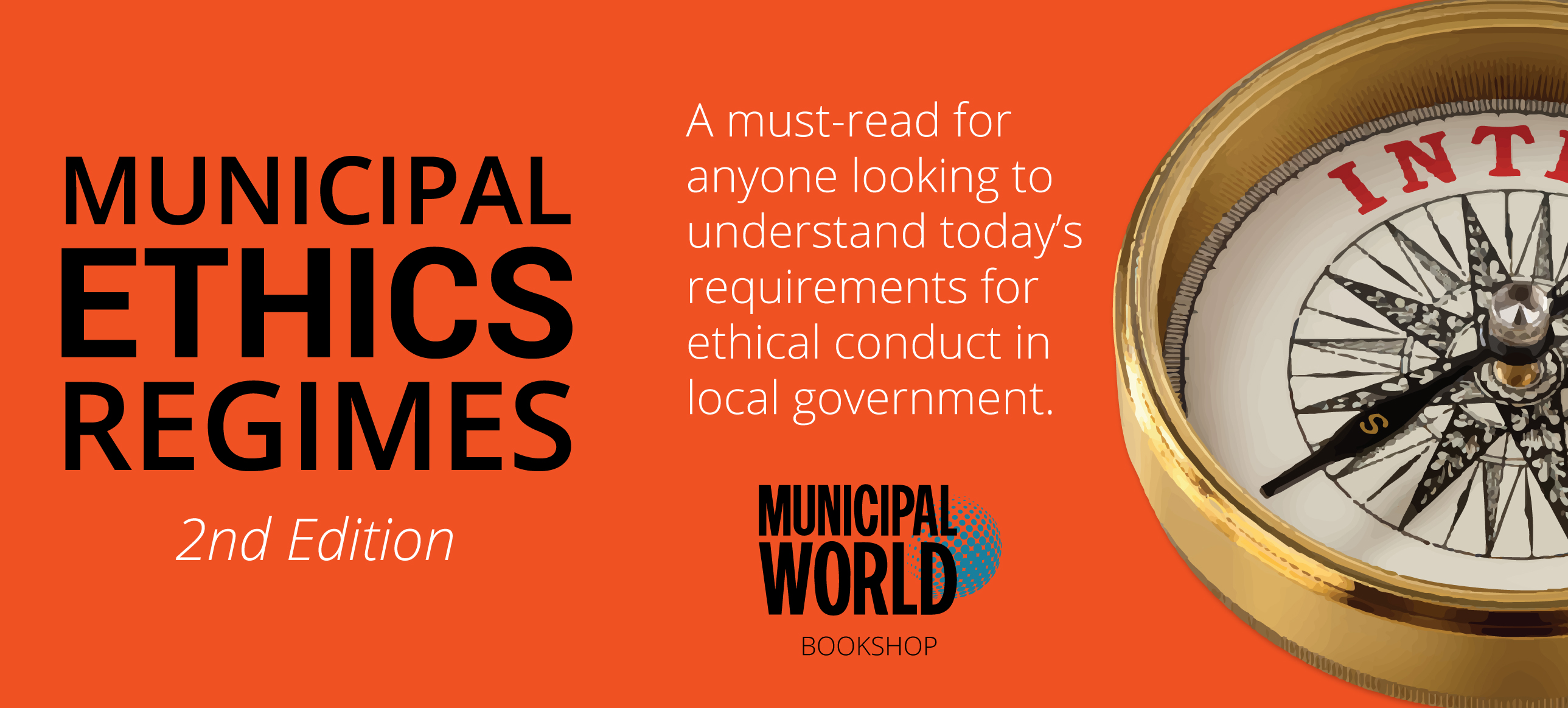Prince Rupert launches innovative wastewater pilot project
 An old lift station that will be upgraded as part of the Prince Rupert Wastewater Pilot Project. Photo: MAGNA Engineering Services Inc.
An old lift station that will be upgraded as part of the Prince Rupert Wastewater Pilot Project. Photo: MAGNA Engineering Services Inc.
Climate change is more and more exacerbating the effects of weather-related disasters like wildfires and floods. Managing the effects of floods and extreme rainfall is becoming a bigger challenge for many communities.
A recent report from the Financial Accountability Office of Ontario estimated that it could cost municipalities an additional $700 million a year to maintain stormwater and wastewater infrastructure over the coming decades.
Some municipalities are trying to find green ways to provide services and build the infrastructure their communities need. Prince Rupert, B.C., has recently started work on a new pilot project that could eventually provide the city with a completely green wastewater management system.
“It is critical for us to work together to address the ongoing challenges of the climate change crisis. Municipalities across Canada are doing their part with innovative solutions that are creating jobs and building climate-resilient communities,” said Steven Guilbeault, federal Minister of Environment and Climate Change. “We must go farther. Green infrastructure investments in Canadian communities will make our air cleaner, our economy stronger, and set us on the path to a net-zero future.”
Model wastewater treatment for coastal communities
The federal Ministry of Natural Resources and the Federation of Canadian Municipalities (FCM) have jointly announced an investment of $487,000 for Prince Rupert’s new wastewater pilot project. The project will install new wastewater treatment equipment and investigate how it might be integrated with regional soils, plants, and other natural characteristics. The project is aiming to reduce pollution and promote effective wastewater infrastructure.
“The City of Prince Rupert is excited to test a new system for wastewater treatment for our community,” said Prince Rupert Mayor Herb Pond. “If successful, this model will save us major capital costs, and could be an innovative approach to serve as a model form of treatment for other coastal communities. Wastewater treatment is a significant infrastructure need for Prince Rupert.”

Concept illustration of the Prince Rupert Wastewater Pilot Project. Photo: MAGNA Engineering Services Inc.
“It’s called a biofilter-based wetland system,” said Jennifer Massig, CEO of Magna Engineering Services, a civil engineering firm that is consulting on the new system. “It’s a sub-surface engineered wetland that provides an easy to maintain wastewater treatment system.”

Typical Wastewater Kidney Wetland Cell Cross Sections. Photo: City of Prince Rupert
The biofiltration system relies on a natural process of breaking down pollutants through marshland vegetation and soil. Solids and sediment are filtered out before the water is pumped underneath the wetlands, where the natural treatment process takes over.
In addition to the environmental benefit, the system can be easily integrated with the surrounding nature. “They don’t need to be built on shorelines, so from the surface they look like planting beds. So, they’ll be integrated into the natural forest around Prince Rupert,” Massig said.
Sustaining the Local Environment
Prince Rupert is one of Canada’s wettest cities, receiving more than 250 centimetres of rain a year. The amount of water that would need to be managed meant that going with a traditional system would prove too costly. So, the city began exploring a wetland system.
“In a traditional system you need a process for each constituent in wastewater, so that decreases efficiency in the overall system. One of the huge benefits of these wetland-based systems you’re actually doing all of that in one system,” Massig said.
In 2020, Prince Rupert conducted a feasibility study that outlined the benefits of using this type of wastewater treatment technology and located a suitable site for the pilot. “The benefits of this for our community are huge,” said Richard Pucci, Prince Rupert’s director of operations and intergovernmental relations. “It’s a very green and innovative solution.”
The estimated cost of constructing and operating the project for five years are around $6 million, about $4 million of which hinges on receiving funding grants. The rest of the costs would be covered by the City of Prince Rupert.
The recent funding comes from the Green Municipal Fund (GMF), which is managed by FCM and funded through an endowment by the Government of Canada. GMF is designed to support local governments looking to switch to more sustainable practices and infrastructure.
“Local governments run on limited resources yet hold an immense responsibility in ensuring that communities treat wastewater properly,” said FCM President Taneen Rudyk.
Ultimately, for Prince Rupert, it’s not just about finding a cost-effective solution, but also one that helps sustain the local environment.
“It just really made sense for us, and we really hope it’s successful,” Pucci said. MW
✯ Municipal World Insider and Executive Members: You might also be interested in Mike Archer’s article: Removing financial barriers with potable, raw water projects.
Ibrahim Daair is Staff Writer and Copy Editor at Municipal World.
Related resource materials:



